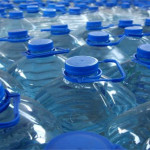
Scientists say the health risks posed by chemicals in food packaging could cause cancer, and warn that far too little is known about the materials used to encase popular food and drink products, reports BBC News-Health.

Scientists Jane Muncke, John Peterson Myers, Martin Scheringer and Miquel Porta recently called for an investigation into the chemicals’ effects in a commentary piece published in the Journal of Epidemiology and Community Health. They wrote cancer-causing substances like formaldehyde are used in many materials, such as plastic soda bottles and disposable dinnerware, which is concerning given people’s daily exposure to these materials.
Formaldehyde could attach to food, and the risks of lifelong exposure to such chemicals were not documented; however, analyzing the issue would prove difficult as there are no unexposed populations for comparison.
They also suspect there may be links between packaging and obesity, diabetes and neurological diseases that need to be explored, and say further research is required to understand how the chemicals used in packing may affect people and embryonic development.
“[Food contact materials] are a signifiant source of chemical food contamination, although legally they are not considered as contaminants,” they said. “As a result, humans consuming packaged or processed foods are chronically exposed to synthetic chemicals at low levels throughout their lives, including the most sensitive periods of development.”
Dr Ian Musgrave, senior lecturer in pharmacology at the University of Adelaide, told BBC it was “very hard to take seriously” the claims that formaldehyde in plastic bottles could cause cancer.
Musgrave said the chemical is naturally present in many foods, and the level of formaldehyde from one apple would be comparable to the amount found in 20 liters of plastic-bottled water.
Dr. Oliver Jones, lecturer at the RMIT University in Melbourne, Australia, said further research is welcome, but that consumers should be more concerned about the high levels of sugar, fat and salt in processed foods versus the transfer of chemicals from the packaging.
Yet, Muncke, Myers, Scheringer and Porta contend there’s plenty of reason for alarm given that more than 4,000 potentially hazardous chemicals are used to make the packaging materials.
Visit EcoWatch’s FOOD and HEALTH pages for more related news on this topic.


Leave a Reply
You must be logged in to post a comment.